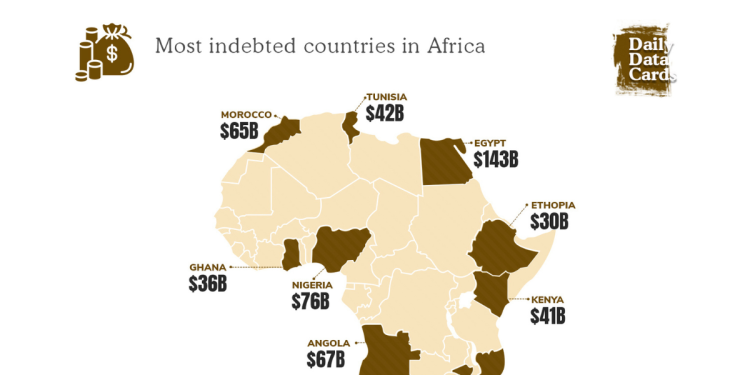
#DailyDataCard: Most indebted countries in Africa
#DailyDataCard: Most indebted countries in Africa
Tag

#DailyDataCard: Most indebted countries in Africa
.webp)
An analysis of the bi-annual data showed that Taraba State increased its external debt by 108.57 percent. Adamawa, Ogun, and Osun states also saw rises in their external debts.
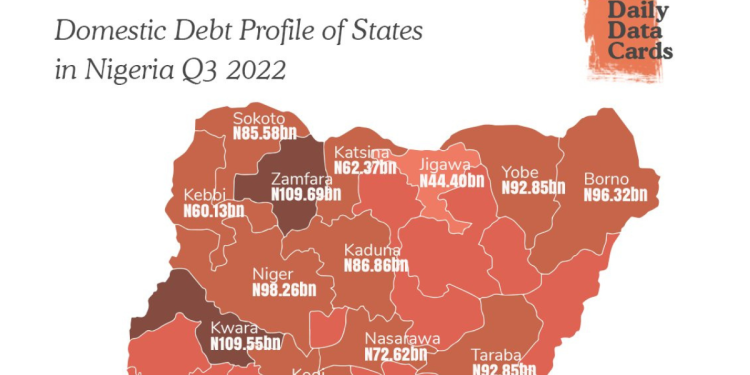
#DailyDataCard: Domestic Debt Profile of States in Nigeria Q3 2022
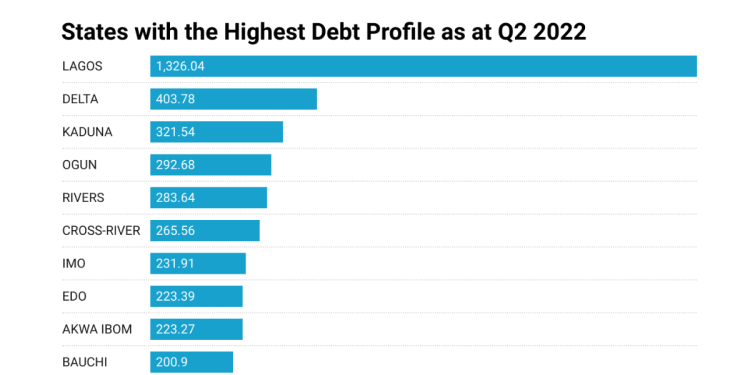
The total domestic debt profile of subnational governments stood at N5.36 trillion by the end of the third quarter of 2022. Though the Debt Management Office (DMO) didn’t give a breakdown of the state government’s foreign debt, state government debt contributed 16.74 per cent of the total debt profile as of June 2022.

The Debt Management Office, in a press statement, noted that Nigeria’s debt profile could reach N77 trillion by May 2023. The agency pointed out that this is due to the addition of Ways and Means (loans sourced from the Central Bank of Nigeria) totaling N22.72 trillion.
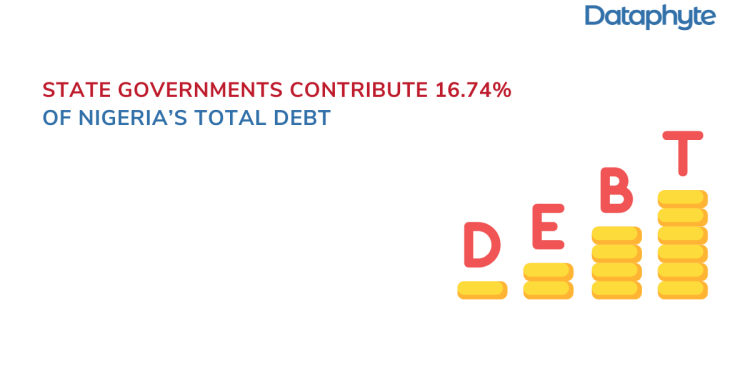
Nigeria’s total public debt rose to N44.06 trillion at the end of September from N42.85 trillion in June 2022.
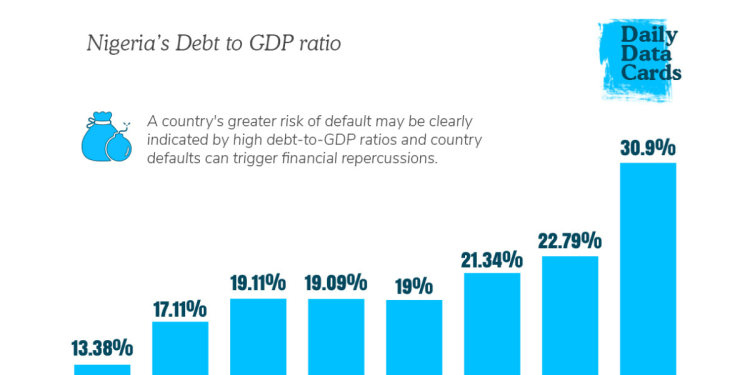
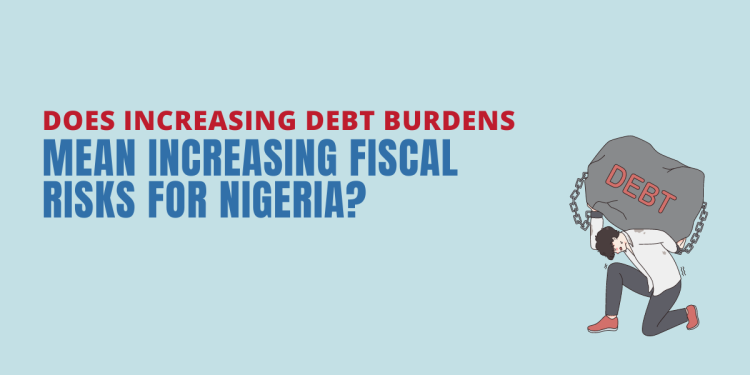
Debt or funds borrowed by the Nigerian government augment revenue generated and provide a fiscal balance for the country to meet its obligations.
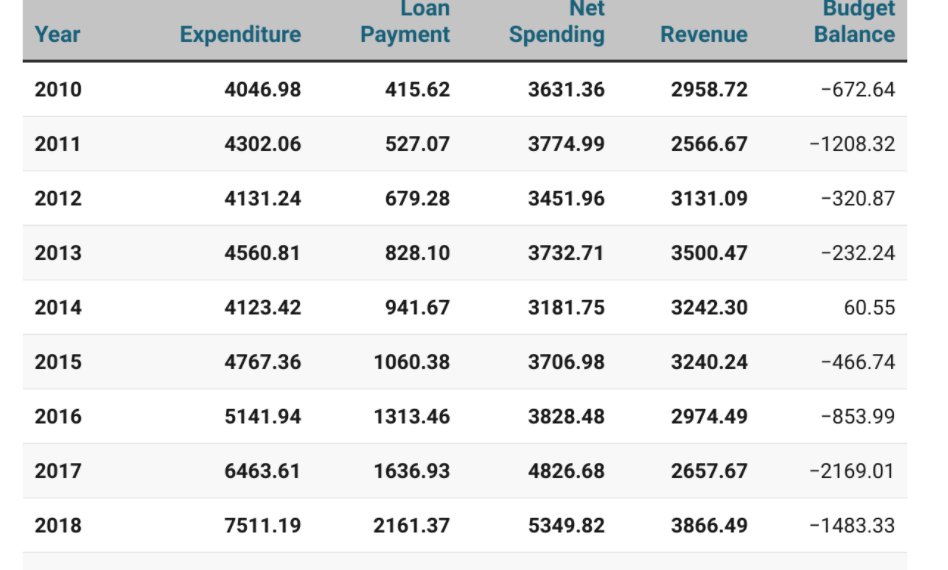
Nigeria’s total public debt hit N39.56 trillion by the end of the 2021 fiscal year.
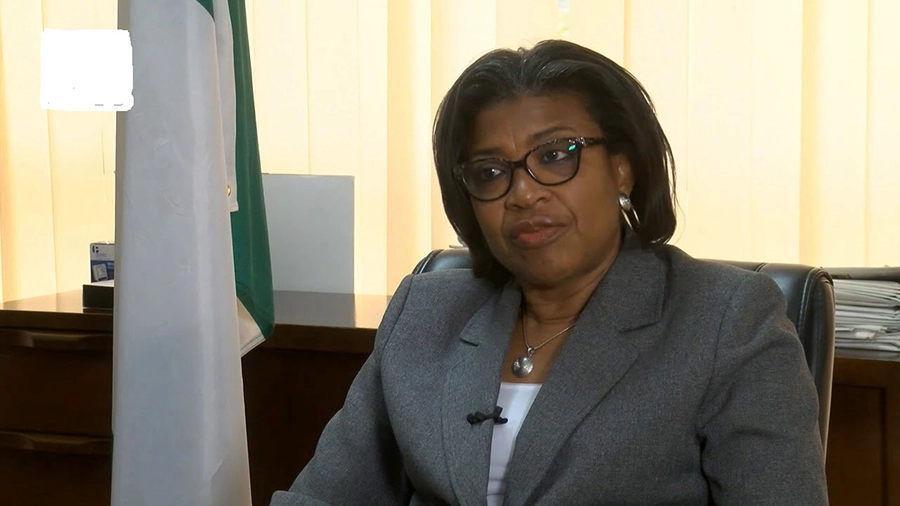
Nigeria spent N310.497 billion on domestic debt servicing in the 4th quarter of the year, N223 billion in October, N34.100 billion in November and another N53.044 billion in December.
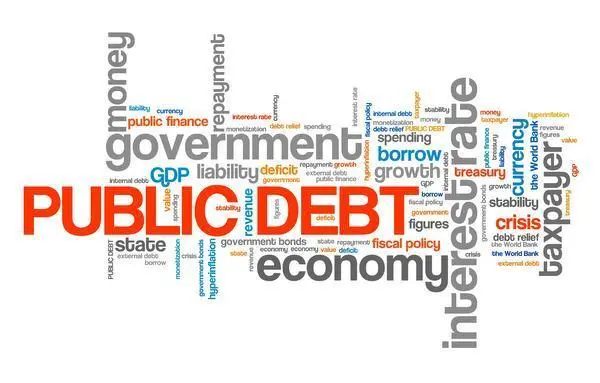
A total of $1.91 billion was spent by the Nigerian government for international debt servicing and payments between January and October 2021.
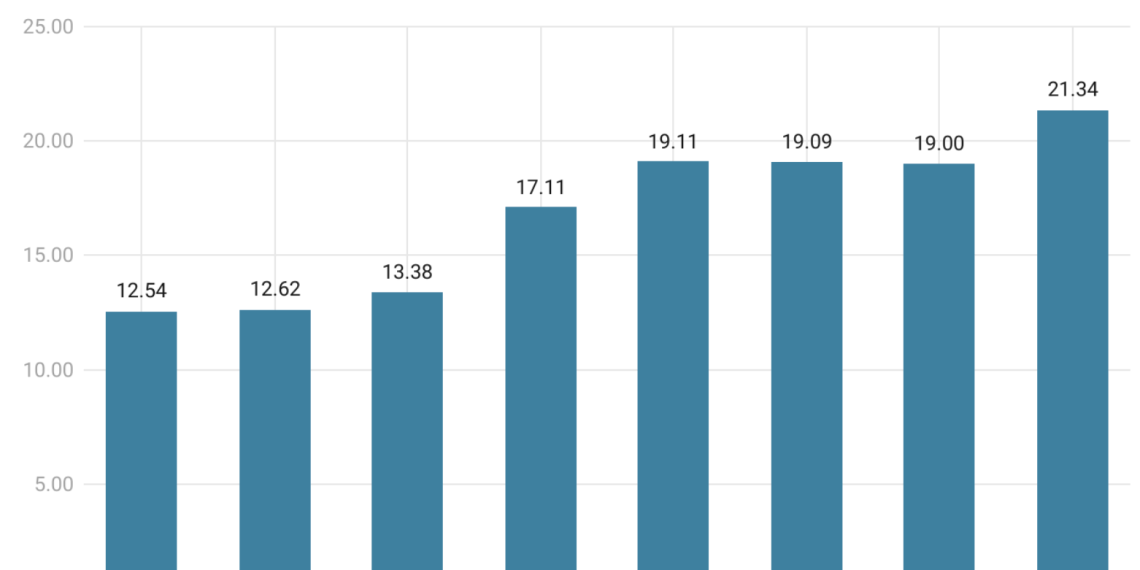
Nigeria’s debt to Gross Domestic Product (GDP) ratio has been on the increase over the last 8 years. It has increased significantly from 12.54% in 2014 to 21.34% in 2020.
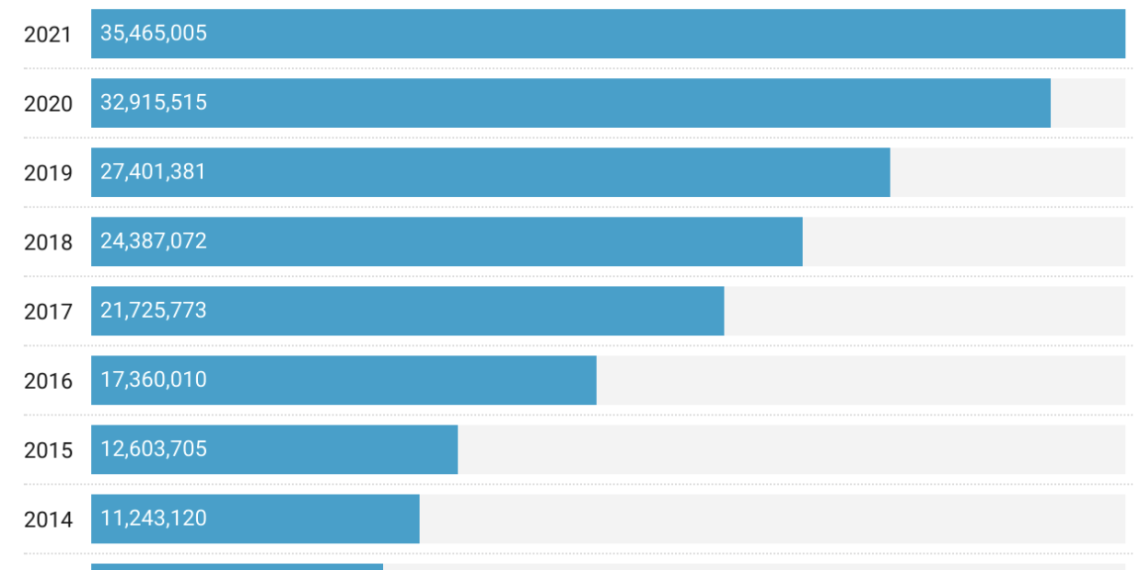
Nigeria presently owes a total of N35.5 trillion according to the report published by the Debt Management Office (DMO) as of June 2021. Of this sum, N13.7 trillion is the total external debt and N21.8 trillion is the total domestic debt.
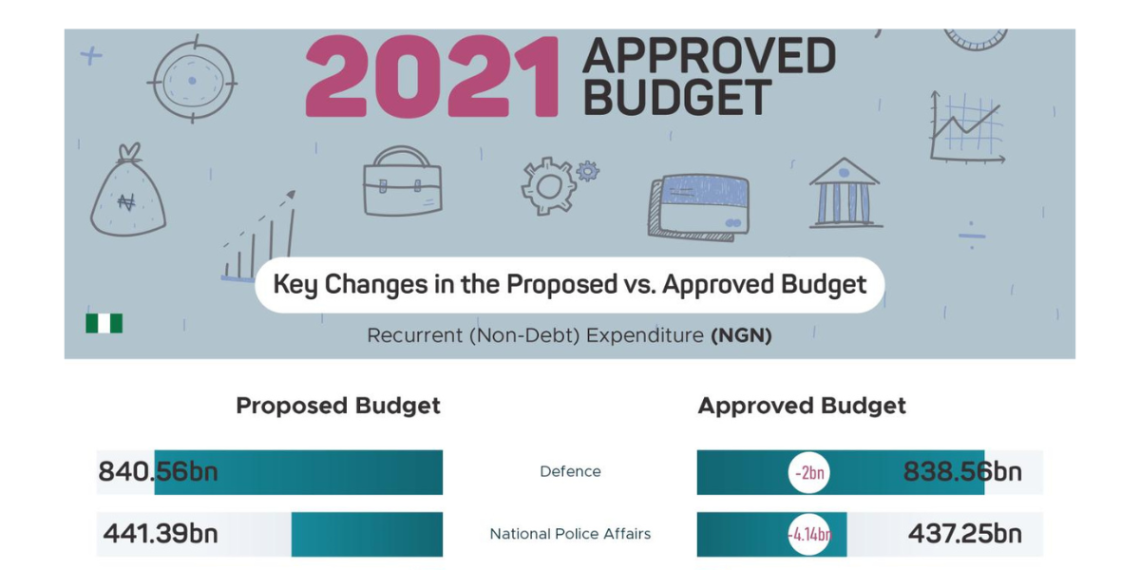
Key Changes in the Proposed vs. Approved Budget (Recurrent (Non-Debt Expenditure)
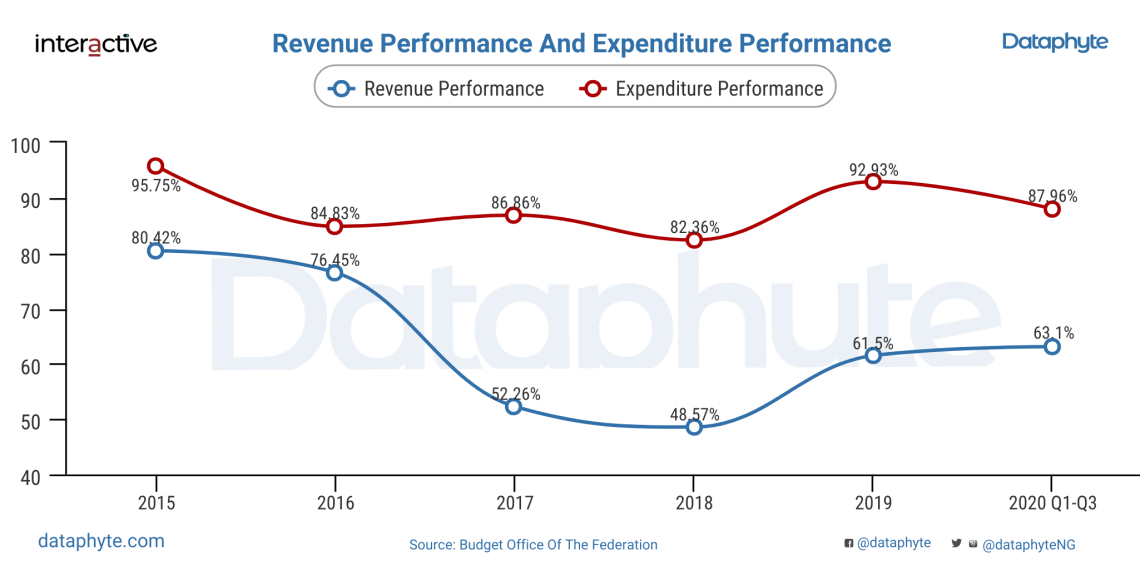
The federal government debt rose from ₦23.3 trillion in 2019 to ₦32.92 trillion by the end of 2020. This crippling debt burden reveals Nigeria’s shrinking revenue base and an unbridled appetite for spending.